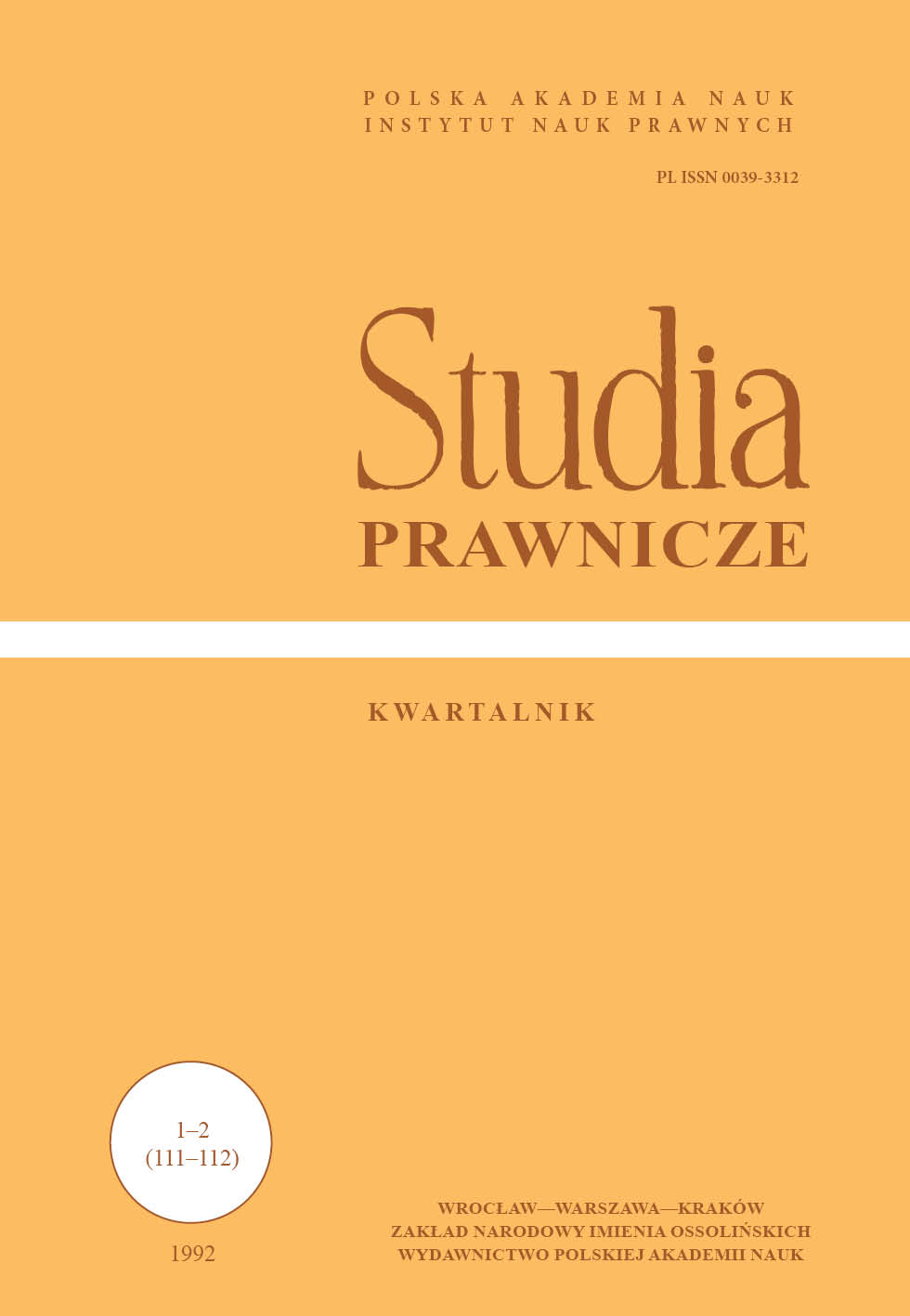Skarga konstytucyjna w Republice Federalnej Niemiec
Constitutional complaint in the Federal Republic of Germany
Author(s): Leszek GarlickiSubject(s): Law, Constitution, Jurisprudence
Published by: Instytut Nauk Prawnych PAN
Keywords: Federal Republic of Germany; constitutional compaint
Summary/Abstract: The institution of the constitutional complaint plays a very important role in the practice of the Federal Constitutional Court. By the end of 1988, the Court had dealt with 69,117 complaints, representing more than 95 per cent of the total cases dealt with. It is not surprising then that chambers and senates dedicated the most of their energy to the complaints. It leads to a work overload for both judges and the FCC apparatus, diverts the attention of the FCC to issues which are often insignificant, and forces it to seek different case selection techniques. This, perhaps, limits the ability of the Court to process other cases, but the already 40 years of practice formed this particular image of the FCC, which did not prevent it from becoming the most active constitutional court in Europe, though. The massive influx of complaints has led neither to a paralysis of the proper functioning of the FCC, nor to a reduction in the quality of constitutional jurisprudence. It is not unreasonable to conclude, moreover, that the only real way of relieving the FCC would be to abolish the constitutional complaint procedure, however, this would defeat the essence of the German model of constitution protection. The model of constitutional complaint adopted in Germany gives it a very broad character. A complaint becomes a universal measure acting against all violations of the constitutional law affecting the citizen, impacting both the importance of this institution and the intensity of its use. In practice, complaints are brought on the basis of all constitutional rights of an individual, except perhaps the right to resist (Article 20(4) UZ). However, the proportions here are very uneven. The majority of complaints include complaints against court decisions and verdicts, and within this framework, the courts are most often alleged to have violated procedural rights of a citizen. It is also relatively easiest to lodge a successful complaint in this case - over 50% of complaints deemed successful were related to the violation of Article 101 and Article 103 of UZ 116. This is understandable, as these violations are related mainly to the course of specific court proceedings and the FCC control does not lead to such general effects as in the case of “fundamental rights” violations. At the same time, this orients the activity of the FCC towards the issues of continuous control of court proceedings which - sometimes termed Pannenjudikaturni - brings its role dangerously close to a “revision super-instance”. On the other hand, however, it is precisely these issues that bring the FCC closest to the day-to-day process of applying the law by the judiciary. The massive influx of complaints has led to the development of different types of methods for selecting the complaints. I have already pointed out that it is a rare exception for a complaint to overcome all the barriers it faces. In practice, the selection principle also leaves the Court with almost complete freedom to select the cases, which is not without political significance. Analogies with the American institution of certiorari are irresistible here. The principle of selection impacts the actual nature of the function of constitutional complaints. Their subjective role - as an instrument of individual protection - is of course somewhat blurred. Nevertheless, the FCC has learnt to extract the most drastic cases from among the thousands of complaints. In practice, the complaint has become a momentous instrument of protection of individual rights, even though the statistical chance of the complainant being awarded a positive FCC ruling remains negligible. Indeed, the protection of individual rights is shaped also - and likely even first and foremost - against the background of the objective role of constitutional complaints. The handling of complaints has enabled a huge expansion of the jurisprudence related to the position of the individual - most of the fundamental decisions have been made exactly as a result of the (positive or negative) handling of a complaint. This resulted in the creation of a rich network of concepts, definitions, criteria, interpretation principles and methods, defining the content, meaning and effects of both individual “fundamental rights” and their entire system. Against the backdrop of the rather modest standards of the written constitution, a much more extensive and constantly evolving “judicial constitution” has formed, a phenomenon which is, incidentally, a part of the essence of modern constitutional judiciary. This gave the fundamental rights an elaborate form and made it possible to practically consolidate the principle of their direct applicability by all state authorities. This, in turn, enabled the birth of the concept of fundamental rights as a specific system of values which determines how they should be implemented in practice, and concepts of their indirect effect (Drittwirkung and Ausstrahlwirkung) on all areas and subjects of legal relationships. The case law of the FCC has created expanded standards for the understanding and protection of individual rights. This is the essential role of the constitutional complaint as an institution that enables the general development of the constitutional approach to of rights of citizens and indirectly determining the way in which the entire state apparatus operates in the application of these rights. The chance of a direct intervention of the Court is rather a potential one, but each and every state authority must take into account the possibility that its acts may be challenged before the FCC.
Journal: Studia Prawnicze
- Issue Year: 1992
- Issue No: 1-2
- Page Range: 3-38
- Page Count: 36
- Language: Polish

